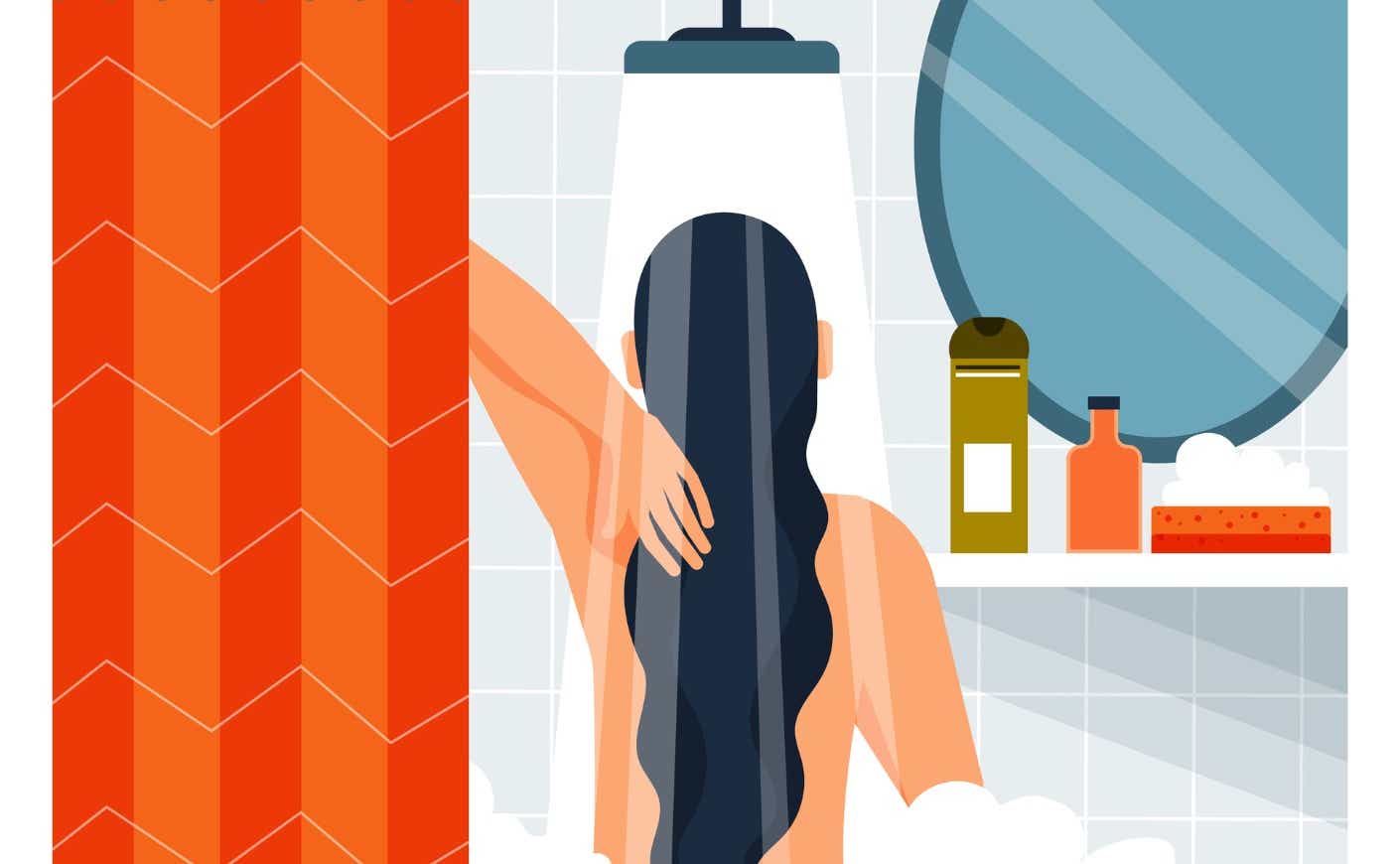To shower or not to shower every day? That’s the question lately. The debate all started a few weeks ago, when Mila Kunis and Ashton Kutcher shared that they don’t believe in bathing their kids or themselves every day during an episode of Dax Shepard's podcast, Armchair Expert. Since then, a number of celebrities and people on social media have waded into the controversy by sharing their own personal bathing habits.
So we turned to two experts to help us settle the debate: How much should people really bathe? Dermatologists Teo Soleymani and Mona Gohara believe the answer is more nuanced than you might think and that it's just as much about health as it is about hygiene.
“It's really important, for skin health and overall health, to recognize that your skin is an organ that has a function, and that function is to keep irritants and germs out, and to keep water in,” said Dr. Gohara, an associate clinical professor at the Yale Department of Dermatology. “If your skin is compromised in whatever way, shape, or form because of not showering, then it's not going to be able to do that.”
Is showering daily necessary?
Not necessarily, especially during the coronavirus pandemic when many of us are still quarantining at home. In general, Dr. Soleymani, who is a dermatologist at UCLA Health, said it’s perfectly reasonable to shower every other day, or every third day. But there are definitely some exceptions: If you lead a more active lifestyle and work out every day, then he recommends showering to avoid acne, which he defines as an “accumulation of the oils on our skin.”
Similarly, Dr. Gohara said showering every day isn’t necessary if you aren’t working up a sweat and don’t mind body odor. However, she thinks there are some body parts you should wash every day, such as your hands, face, armpits, groin, and feet. “There are certain germs that can accumulate,” she said. “So it's just helpful to wash parts of your body that are more prone to that.”
But go easy on your skin and the hot showers that can strip it of moisture. "There are certain practices and products that you could be using in the shower that actually could be harmful," said Dr. Gohara. She recommends using a gentle, non-soap cleanser to wash and either your hand or a cotton washcloth, so “your skin barrier maintains its integrity.”
Should we be showering more because of the coronavirus pandemic?
It depends. If you aren't leaving your house then there's no need to increase, but if you're a healthcare or frontline worker, then it's wise to shower on a regular basis. Dr. Soleymani said since he sees patients every day and tends to work out more, he showers twice a day — once in the morning and again at night.
Is it better to shower in the morning or at night?
This brings us to another time-tested debate: Is it better to shower in the morning or night? Both experts believe it’s more beneficial for your skin to shower at night, because you'll wash off the day's grime before getting into bed.
Hygiene isn't the only consideration — showering at night can help establish a comforting and relaxing pre-bedtime routine. Research has suggested that a warm shower or bath before bed can help you fall faster and improve your overall quality of sleep.
“Showering artificially raises the temperature again and allows for a faster cool down, which seems to hasten sleep,” explained Dr. Janet K. Kennedy in an interview with The New York Times.
Are there perks to showering less?
There are definitely some benefits to not showering as much, particularly when it comes to maintaining your natural body oils. “It's actually a good thing to keep some of the oils on our skin as long as we can, because they provide natural moisture and a barrier from outside allergens,” Dr. Soleymani said.
Bathing frequency also depends on age. For instance, kids shouldn’t shower as much as adults: With newborn children and infants, Dr. Soleymani says daily bathing can do more harm than good to their delicate skin. The American Academy of Dermatology backs this up, recommending that kids between the ages of 6 and 11 only need to be bathed once or twice a week unless they get dirt on them from playing outside.
What happens if you don’t shower enough?
Dr. Soleymani said not showering enough can lead to skin-based infections and irritations. He said he sees this more commonly in seniors and older people who don’t have the ability to bathe every day, whether it’s because they physically can’t do it themselves, or don’t have anyone to help them. But he added that “ultimately you have to know your skin,” because everyone is different.
“If you tend to have sensitive skin, or tend to get rashes or breakouts easily, then you may want to control the burden of bacteria and dirt that live naturally on your skin,” he said. “If you're one that tolerates it fine — you're not prone to breakouts or rashes — then by all means, I think it's fair to take a step back from the hyper-sterility of the world that we live in.”









